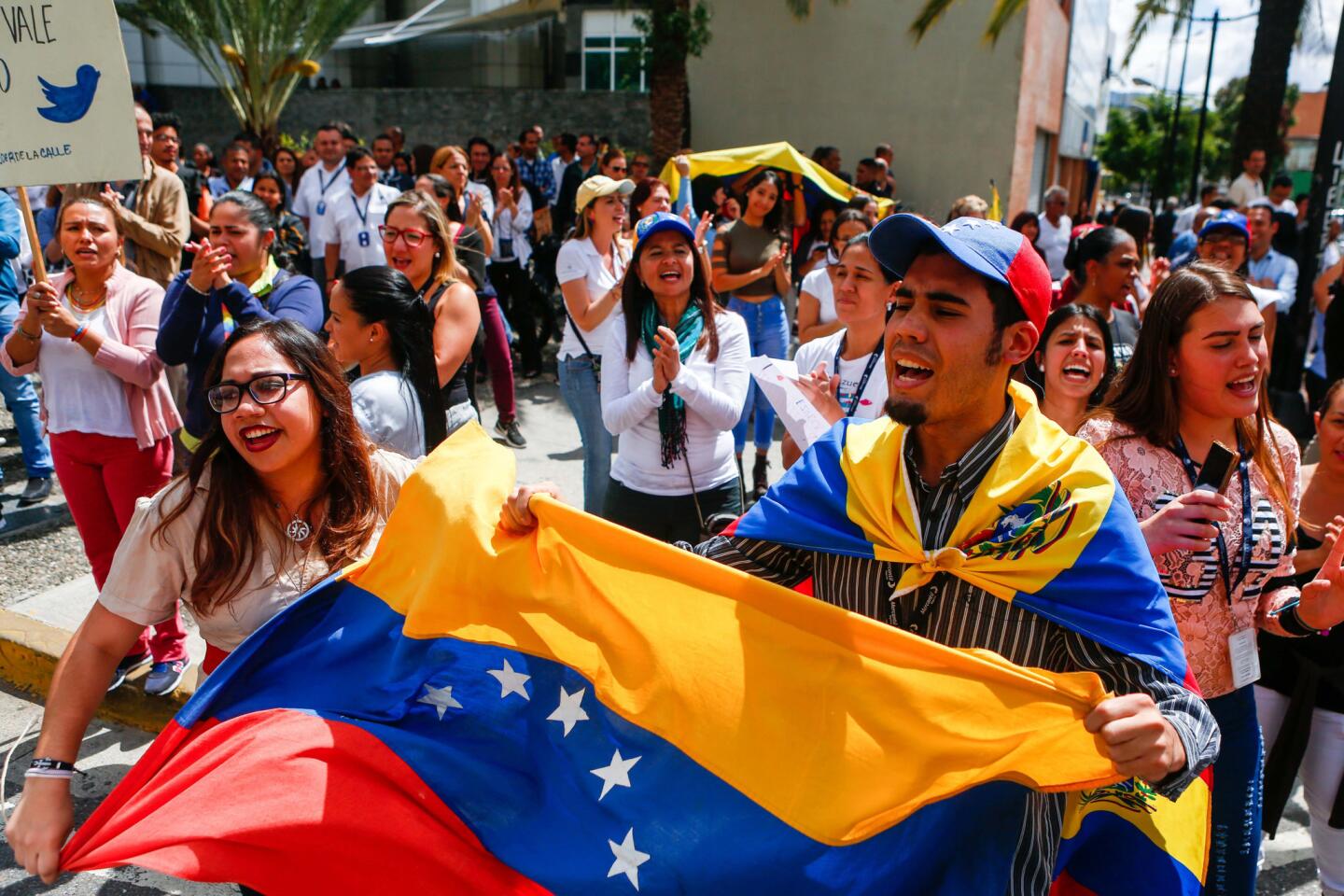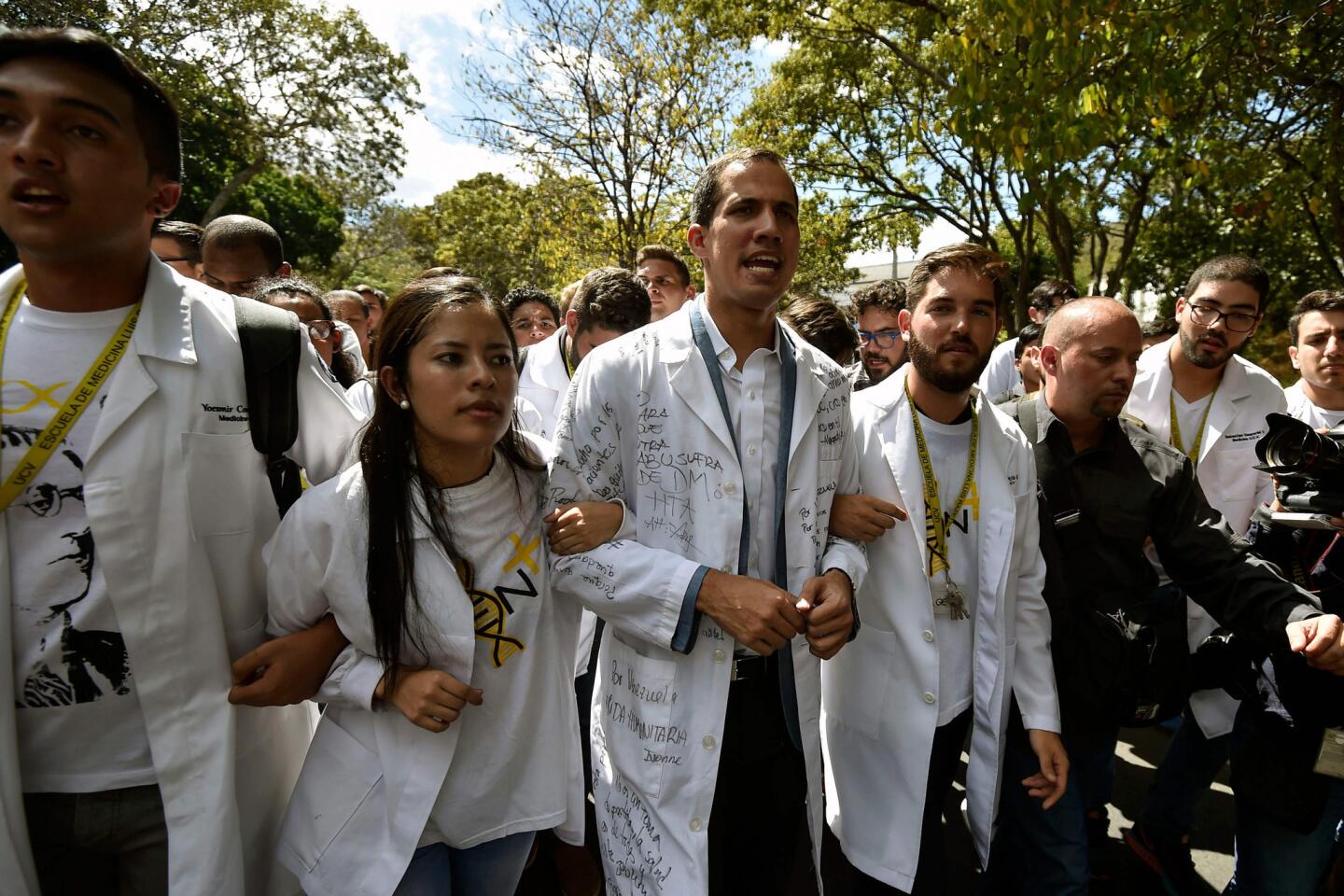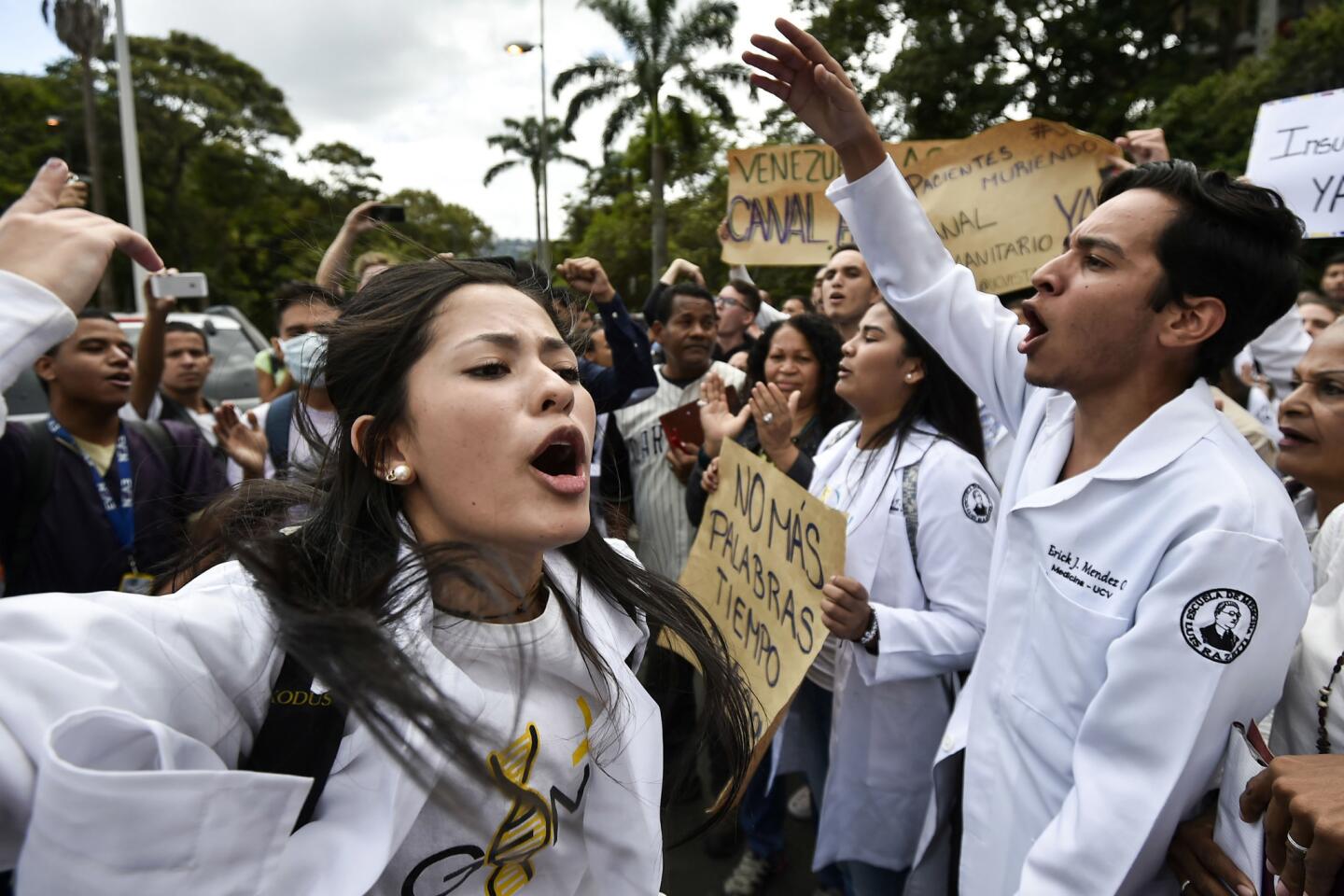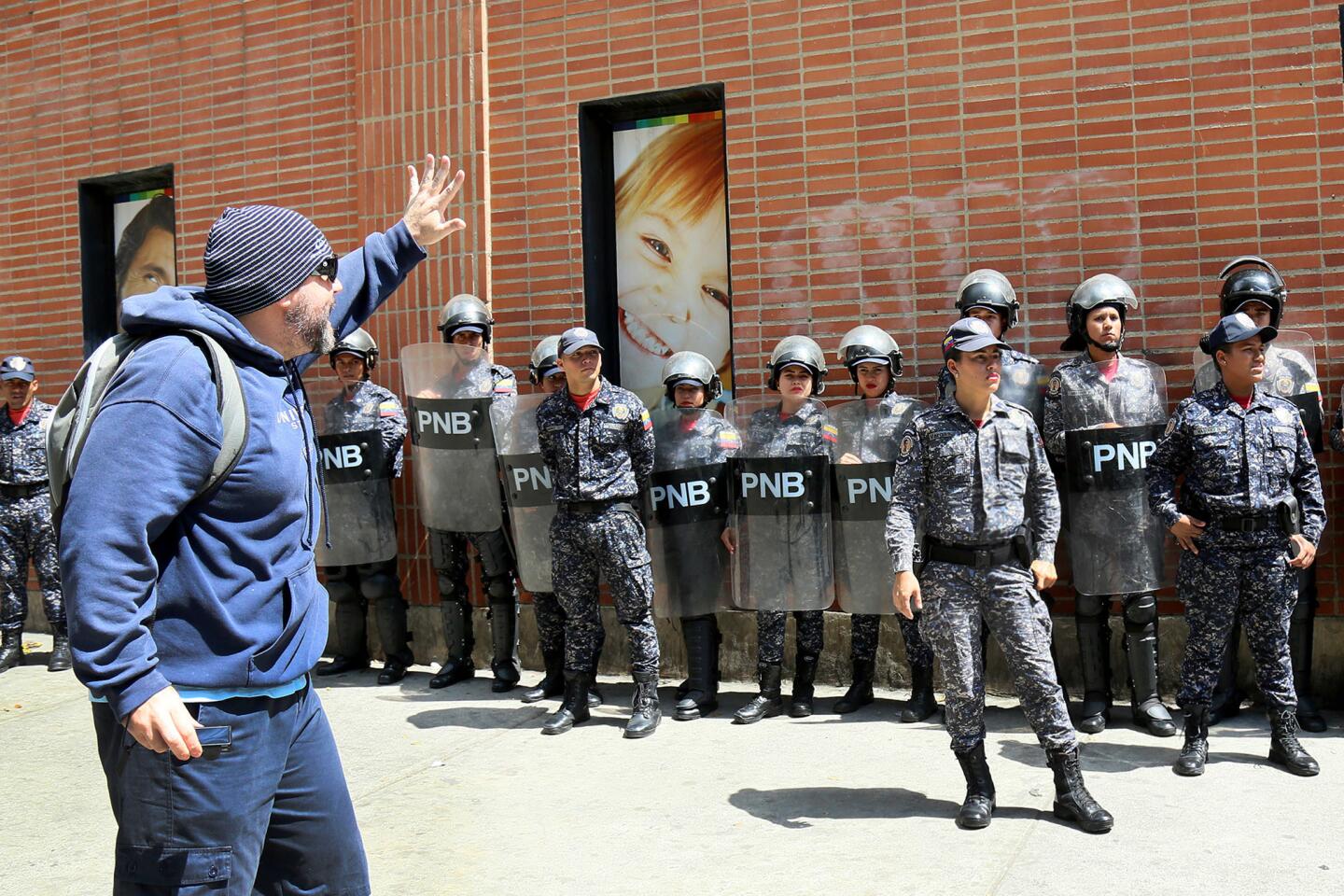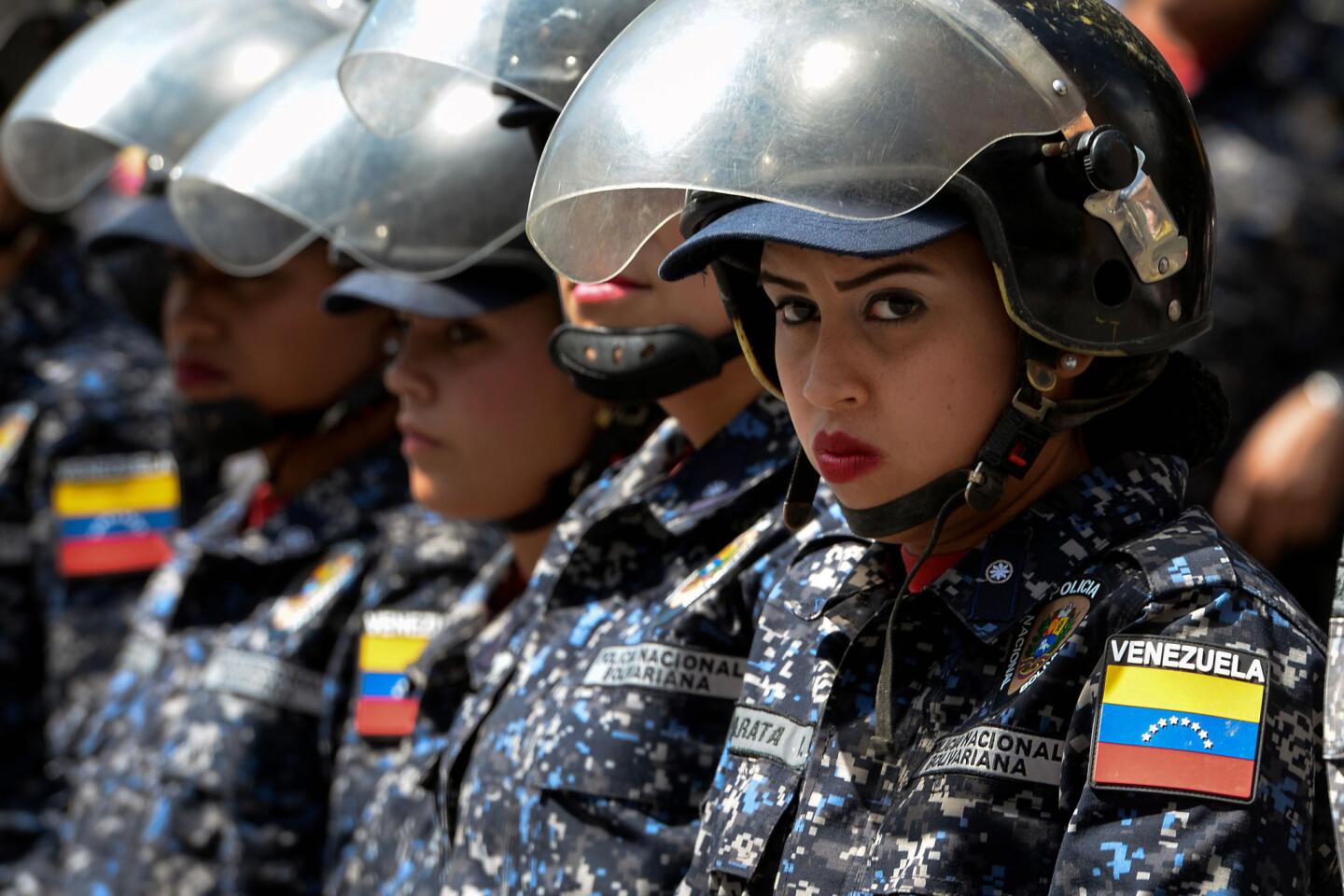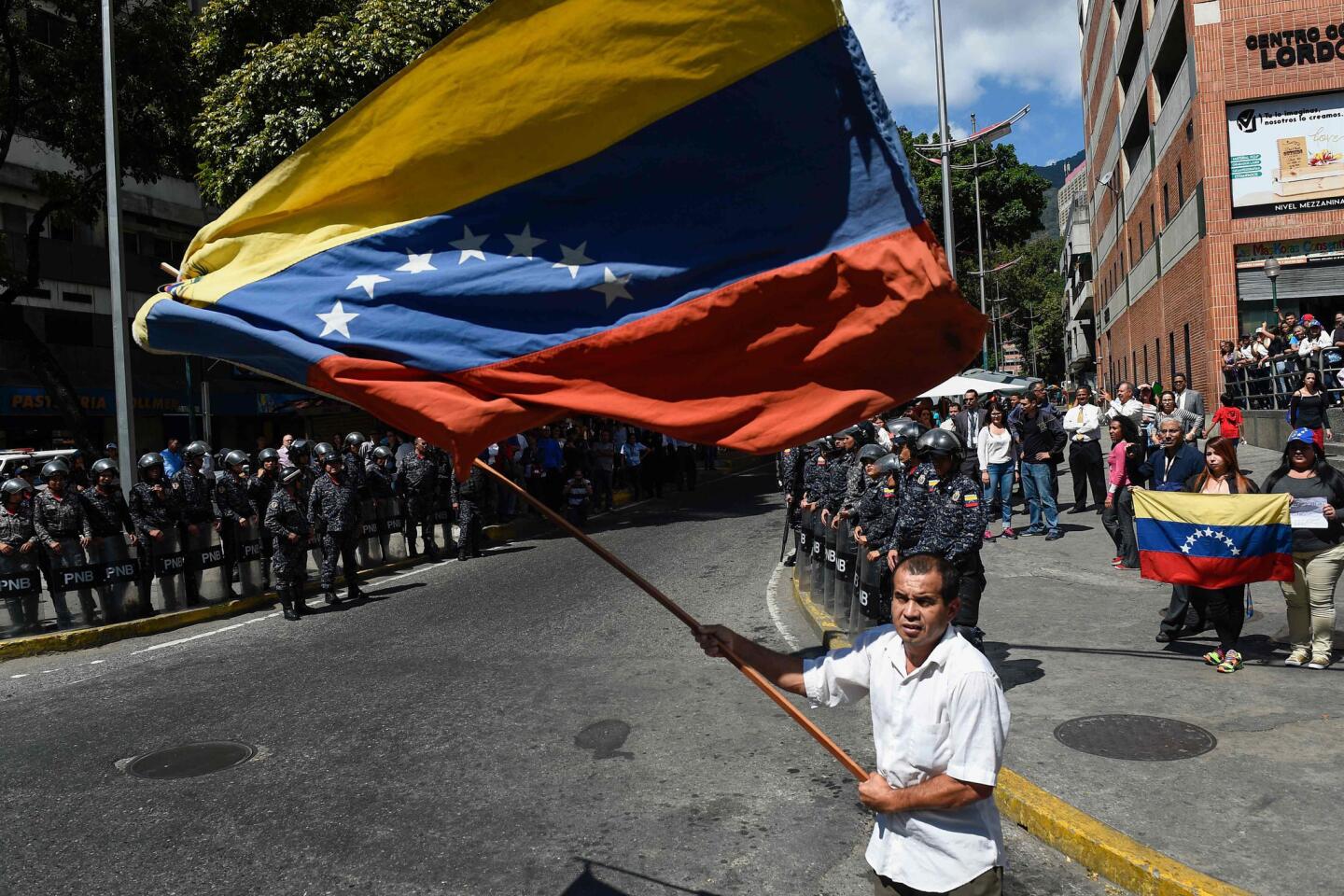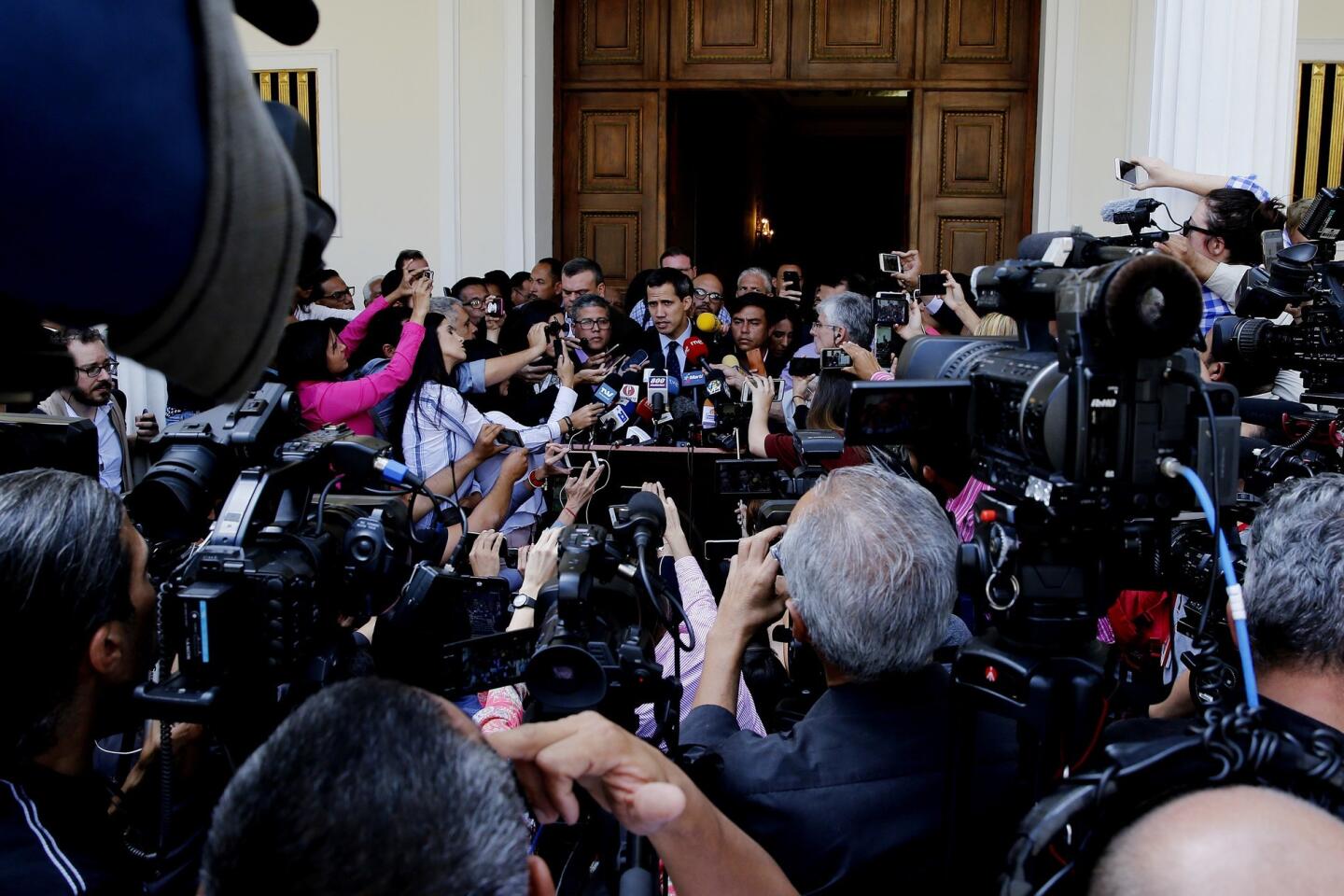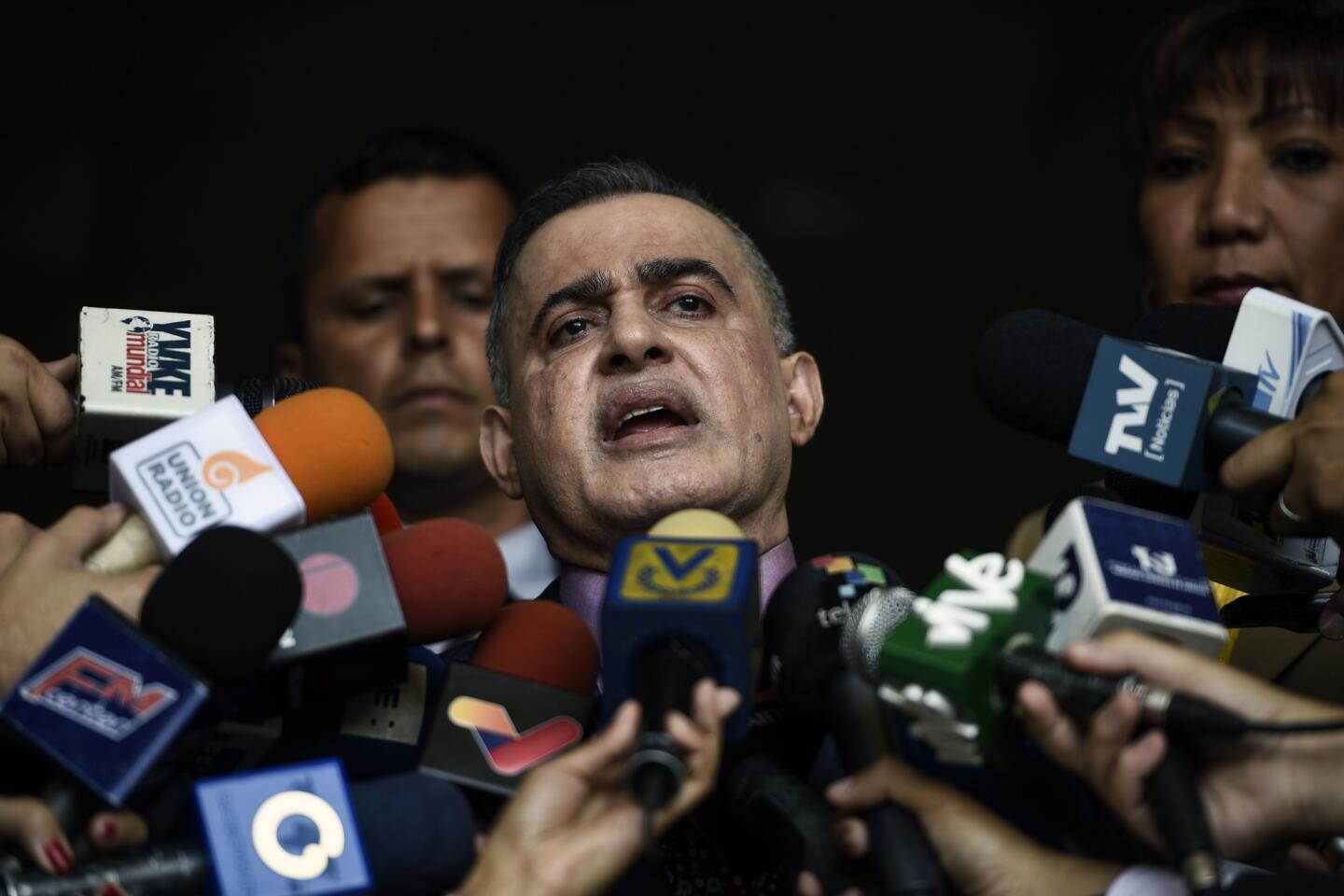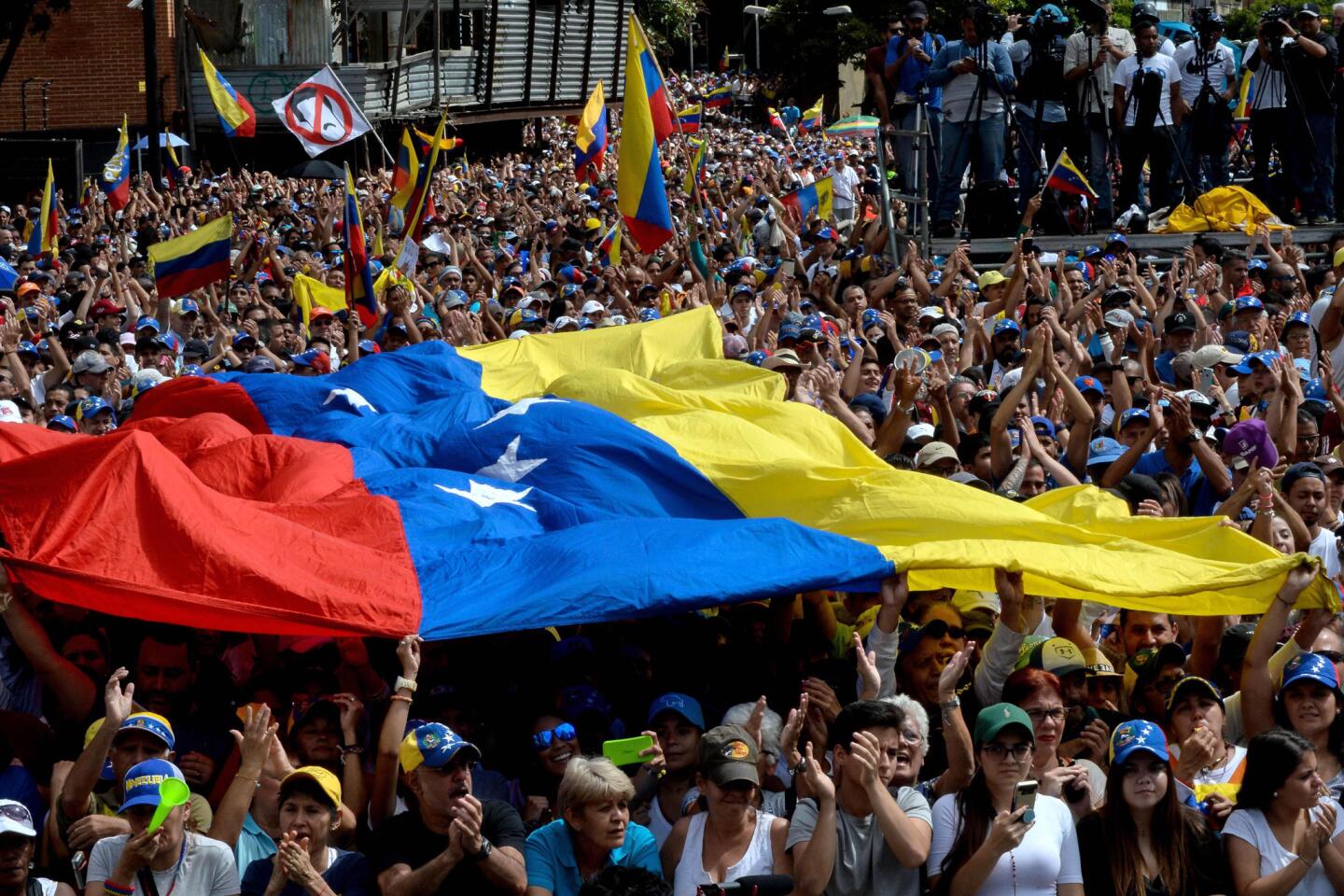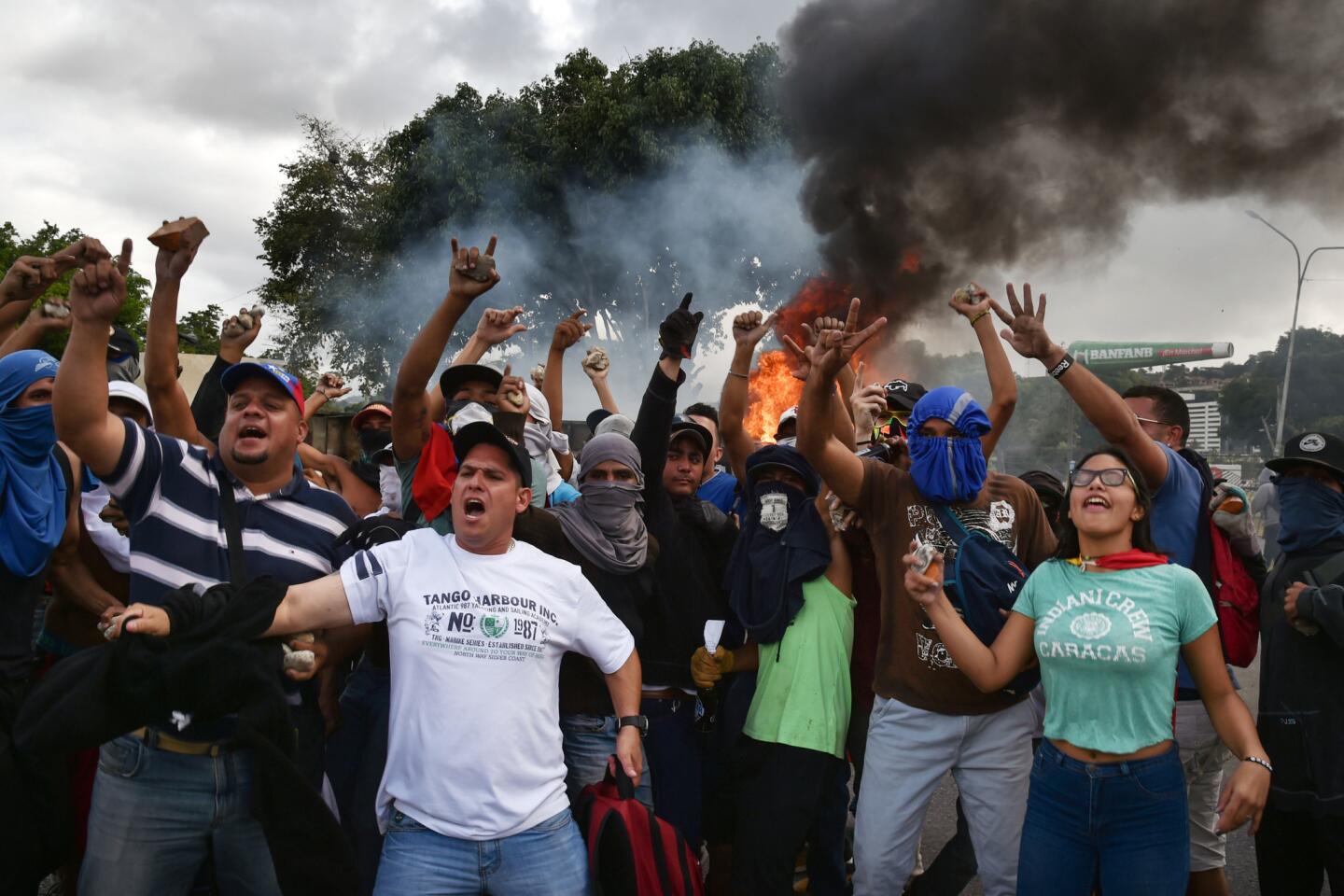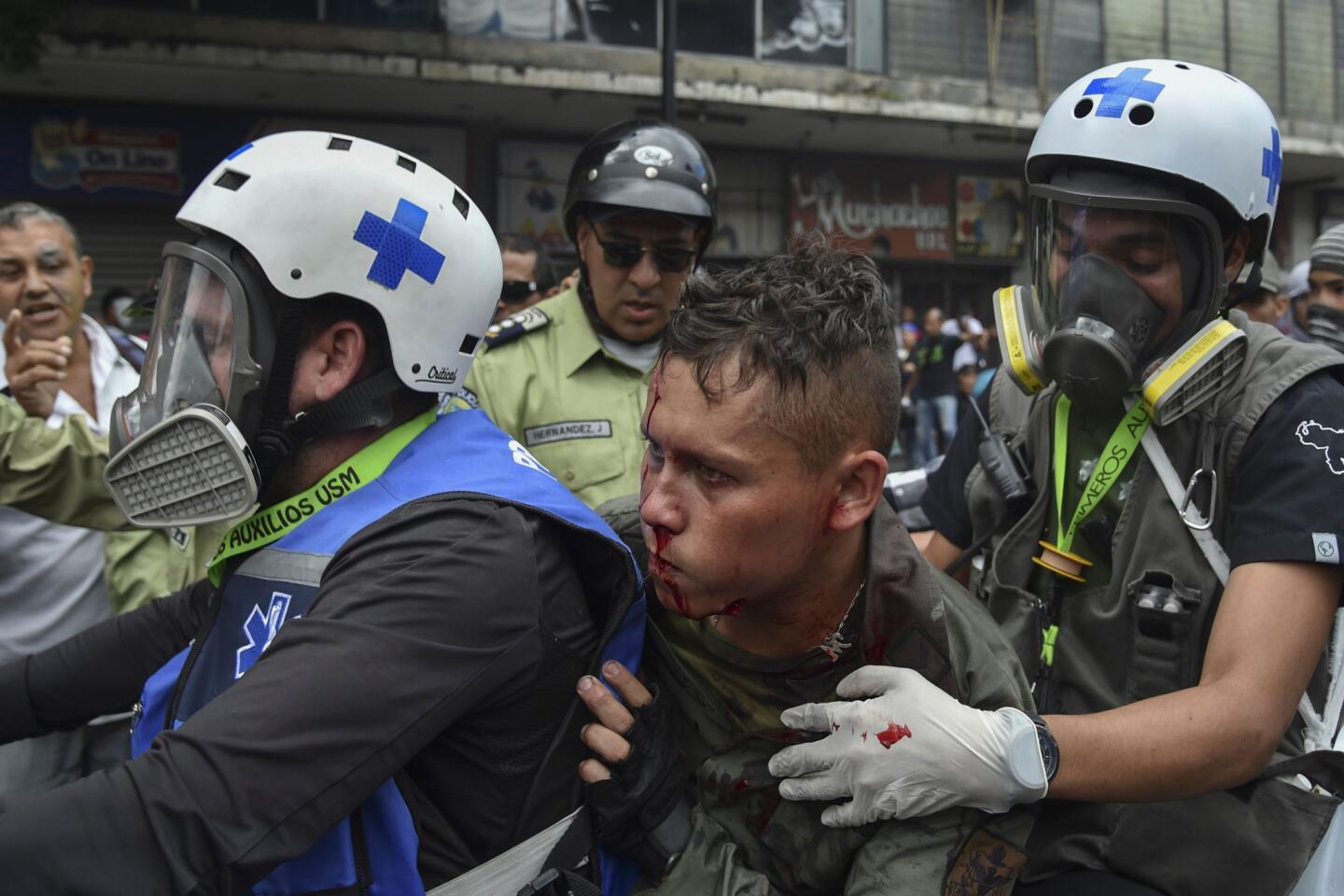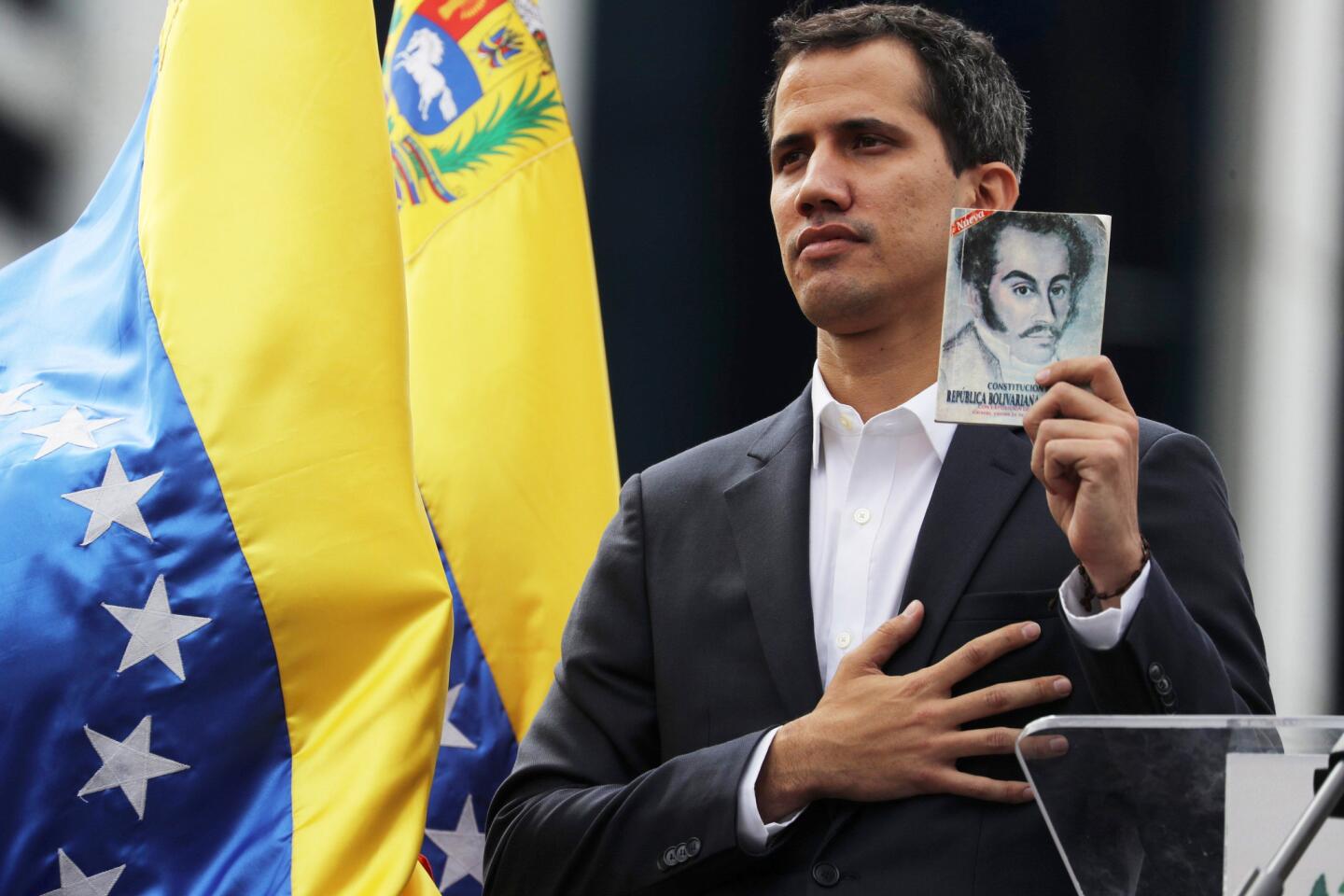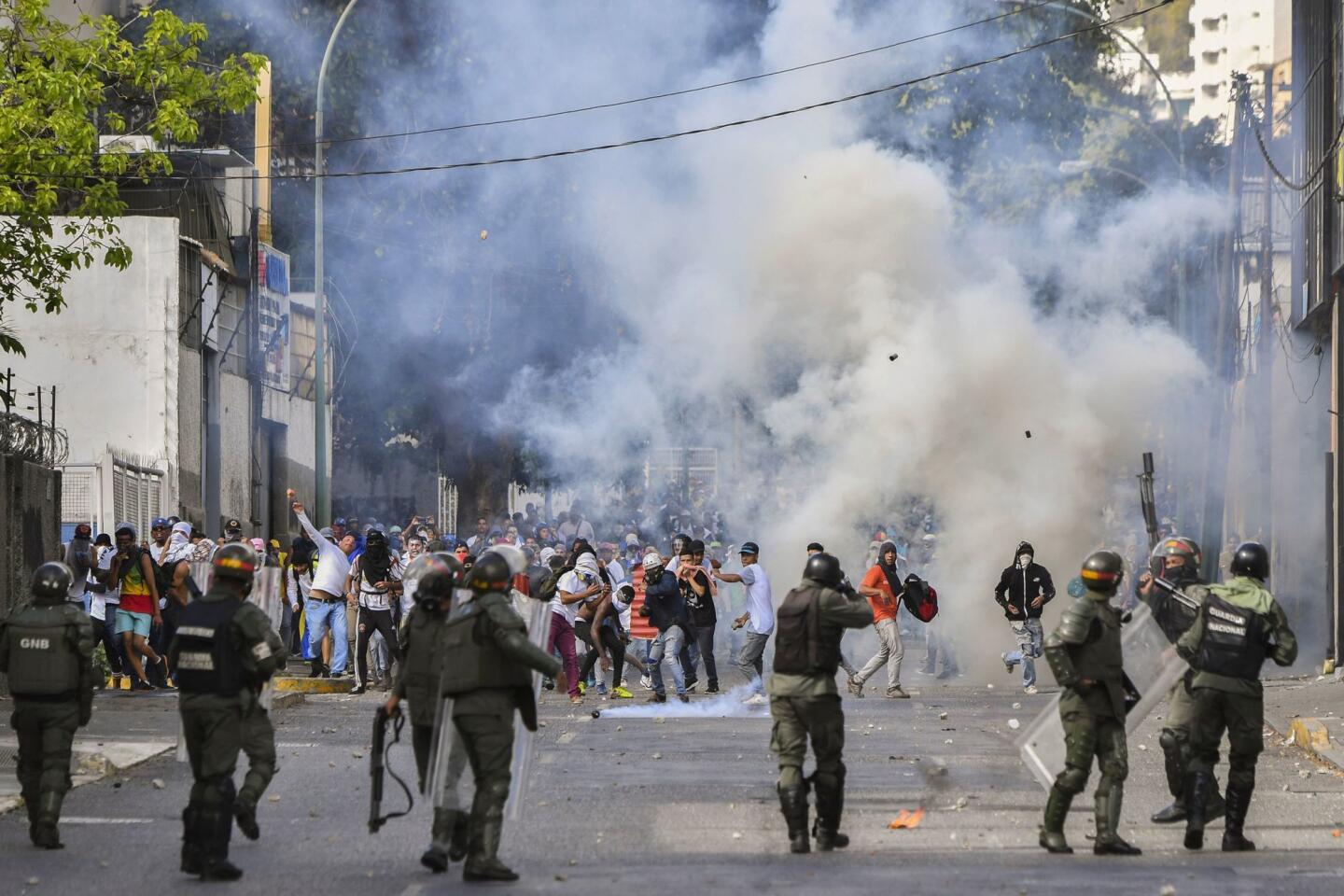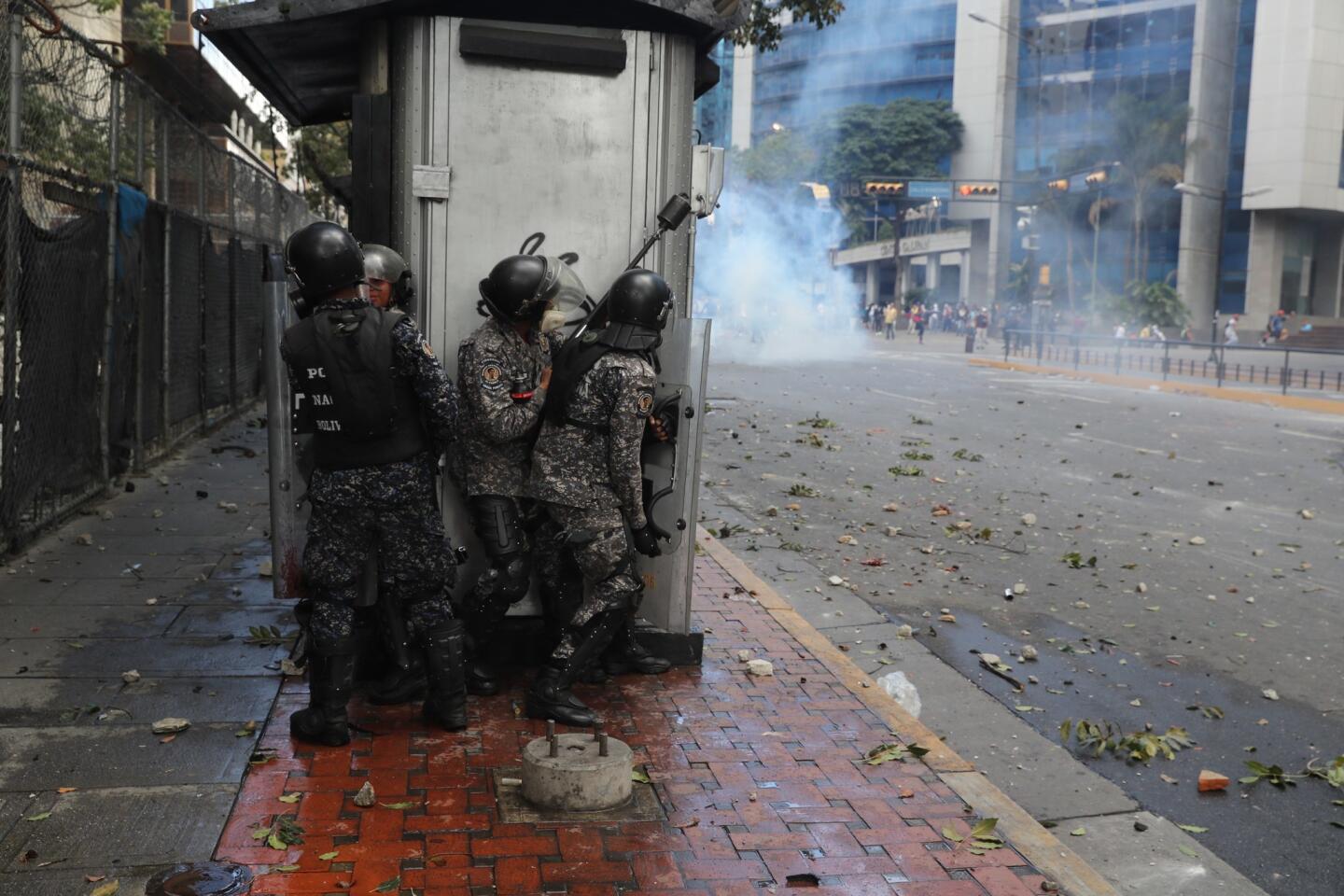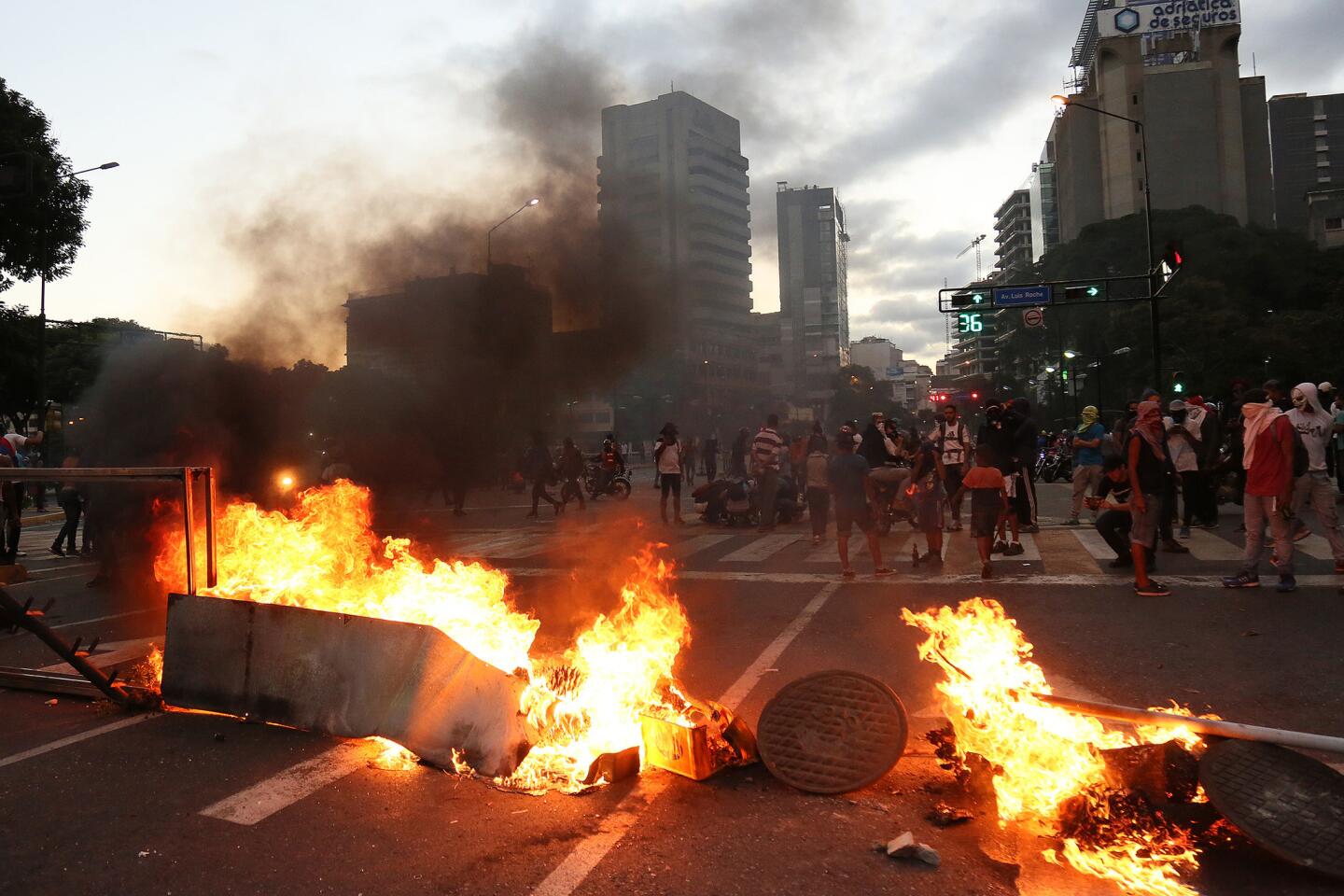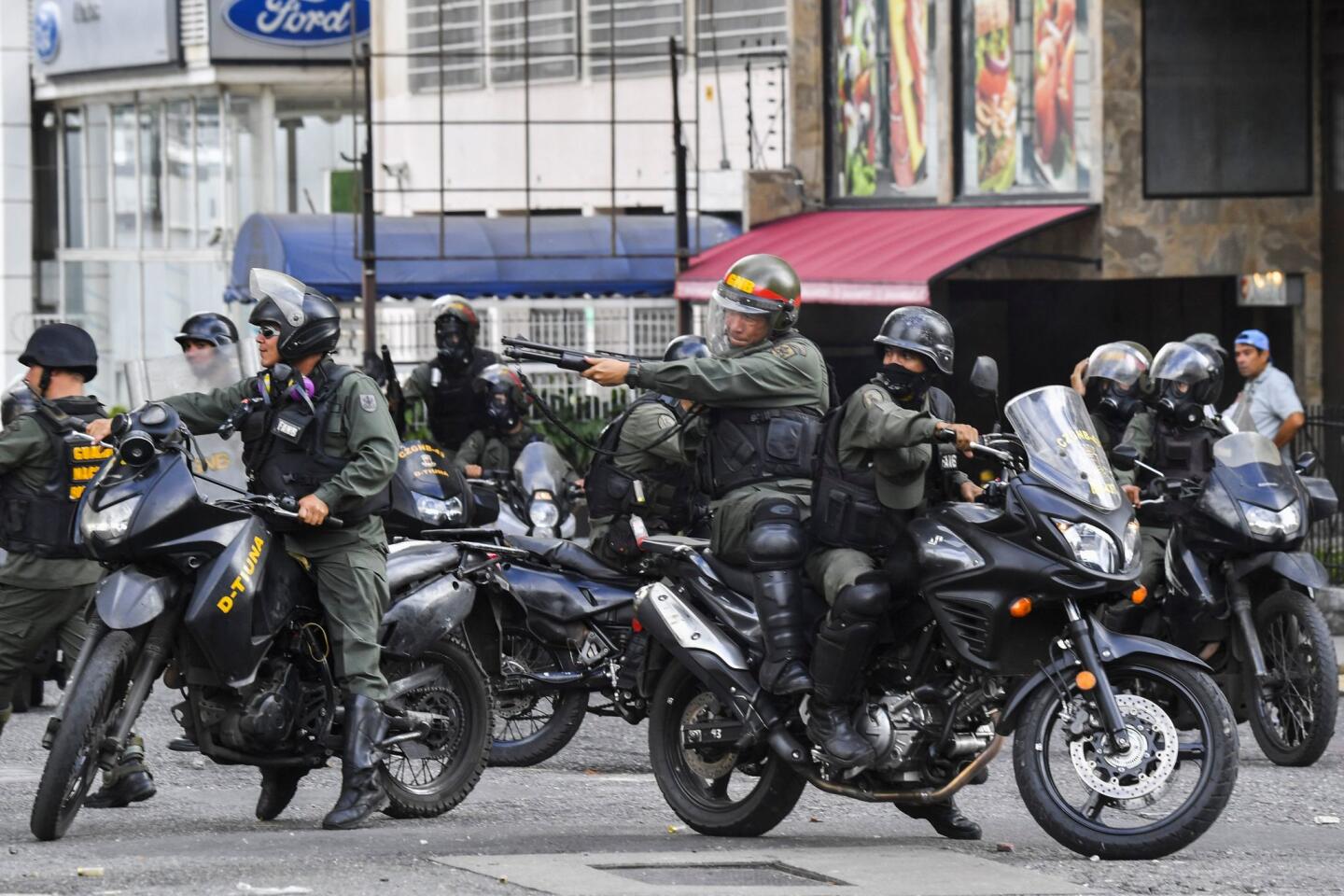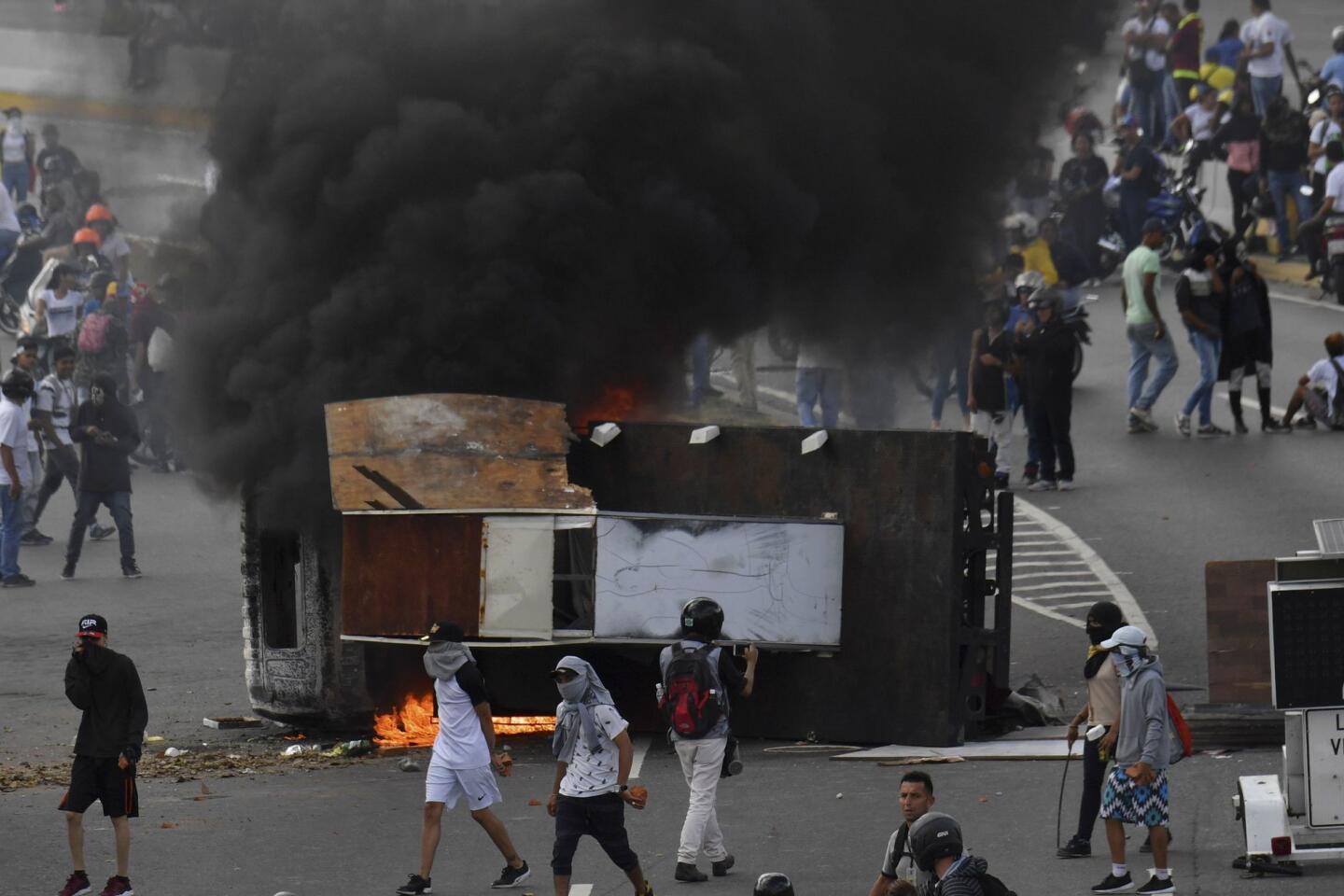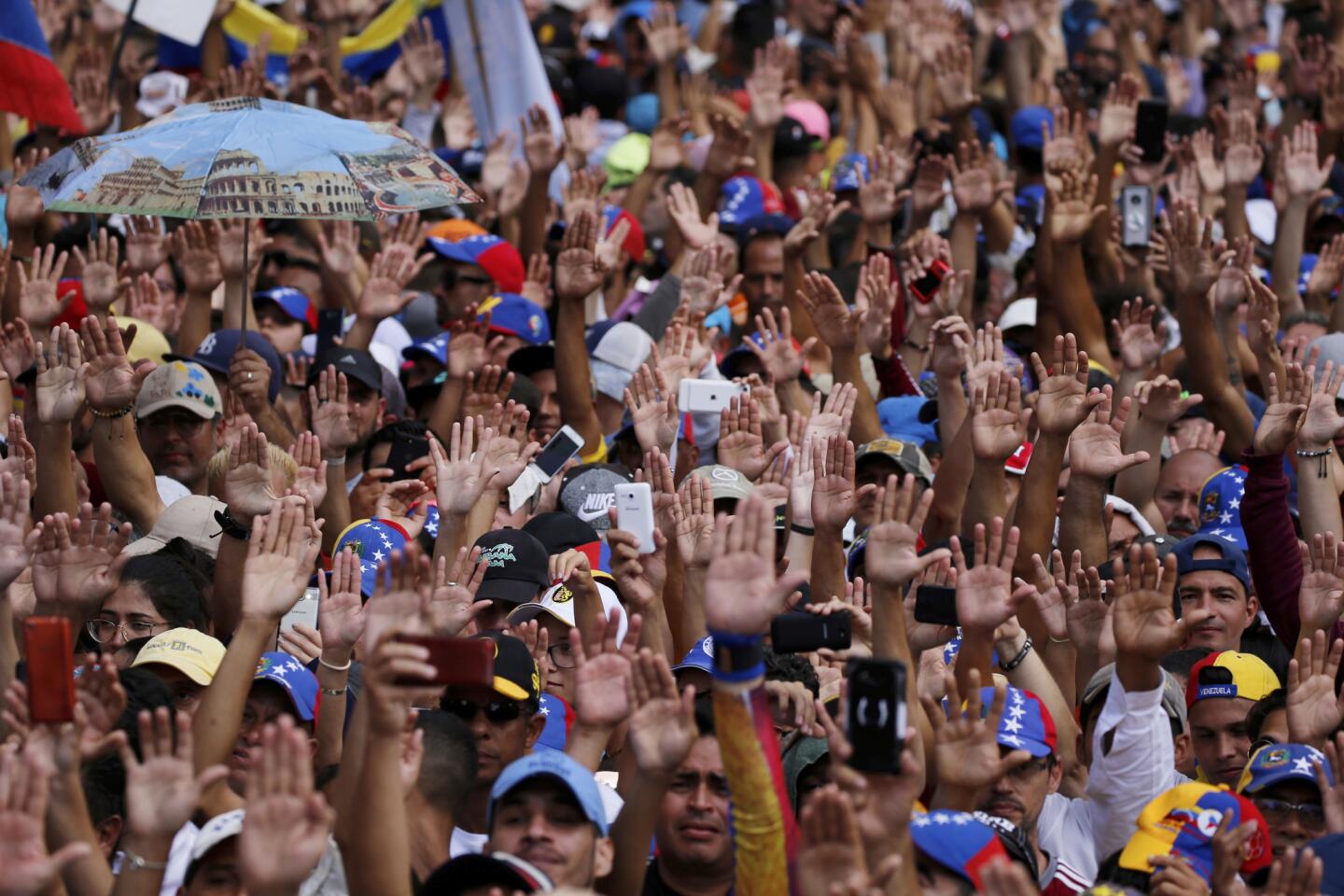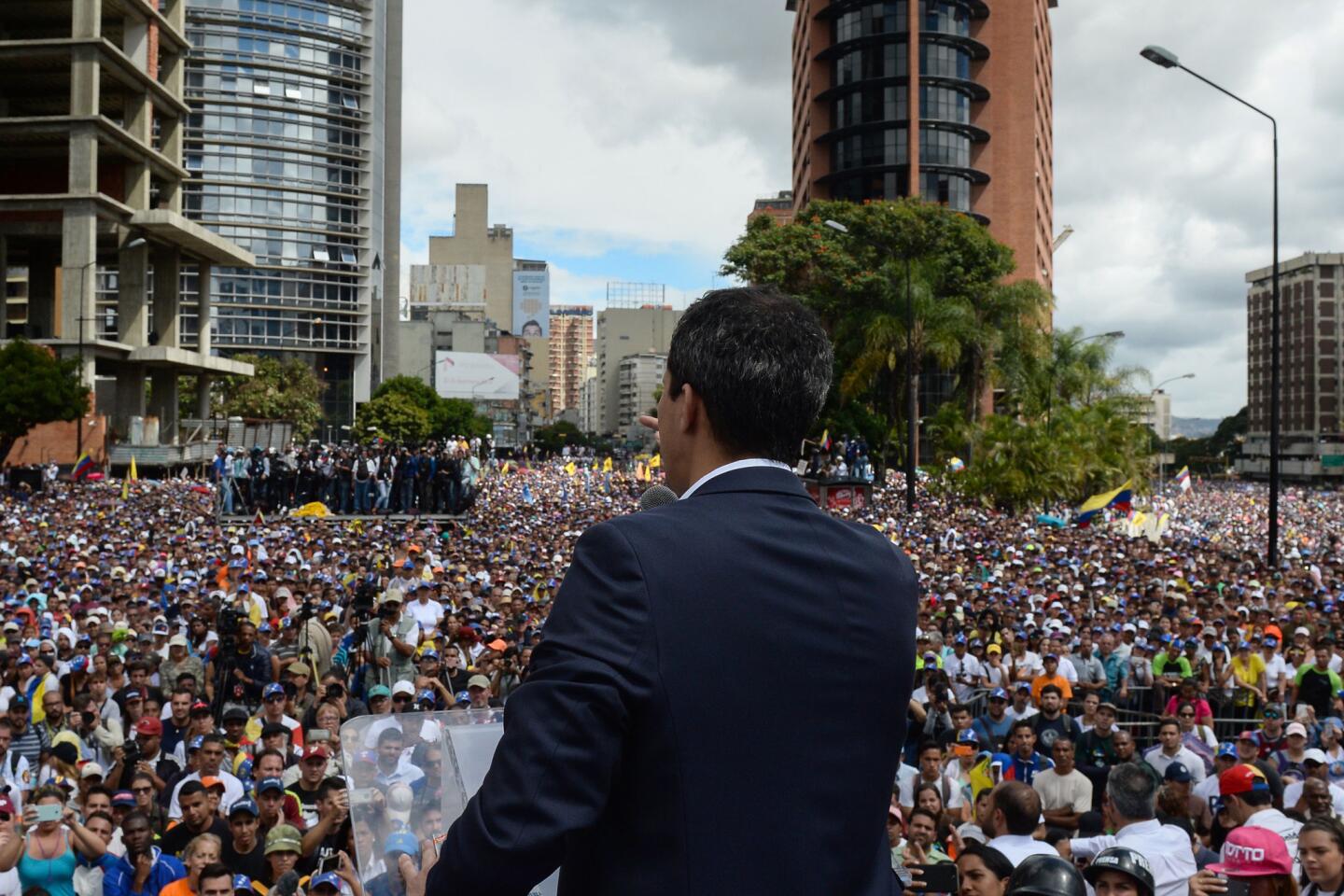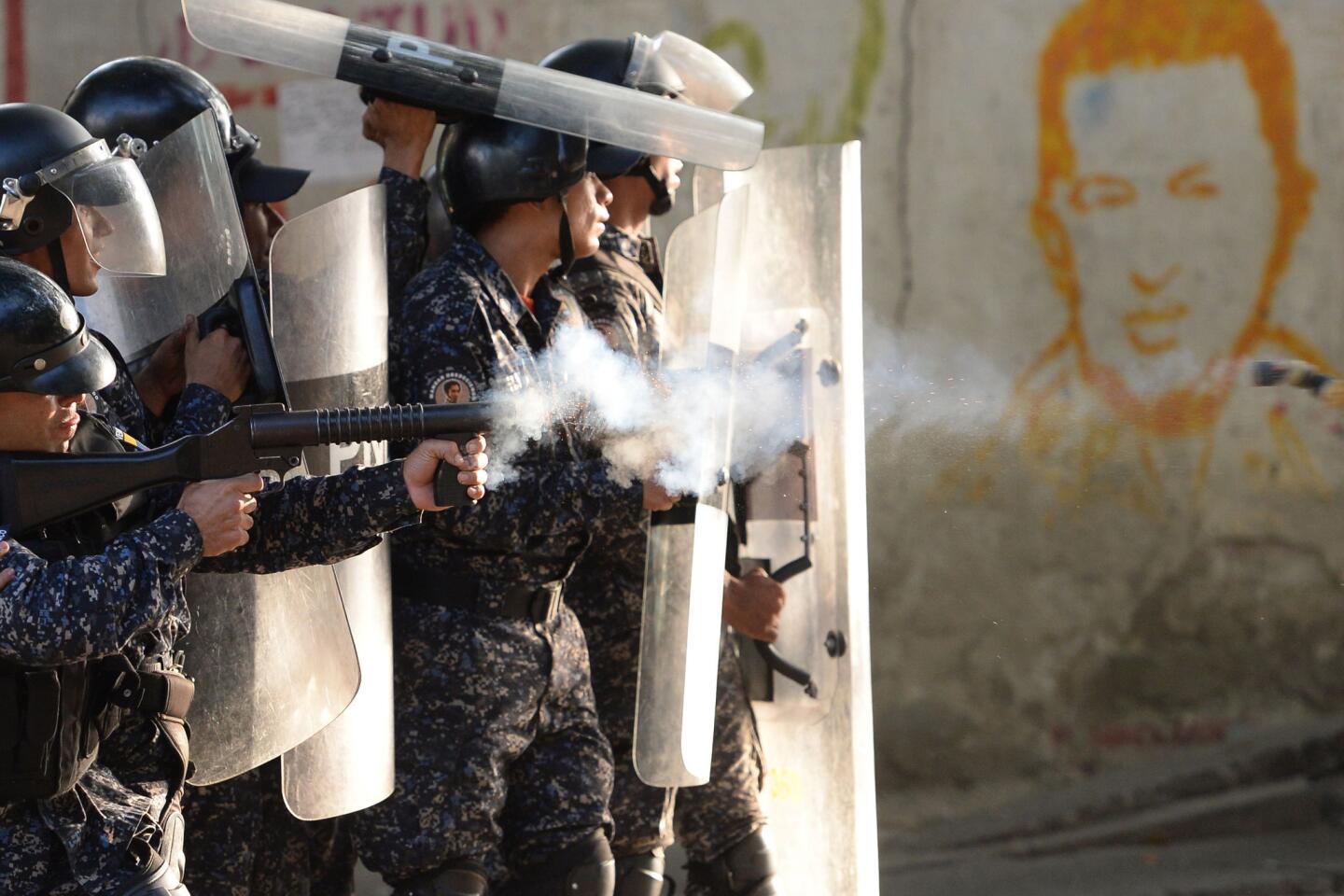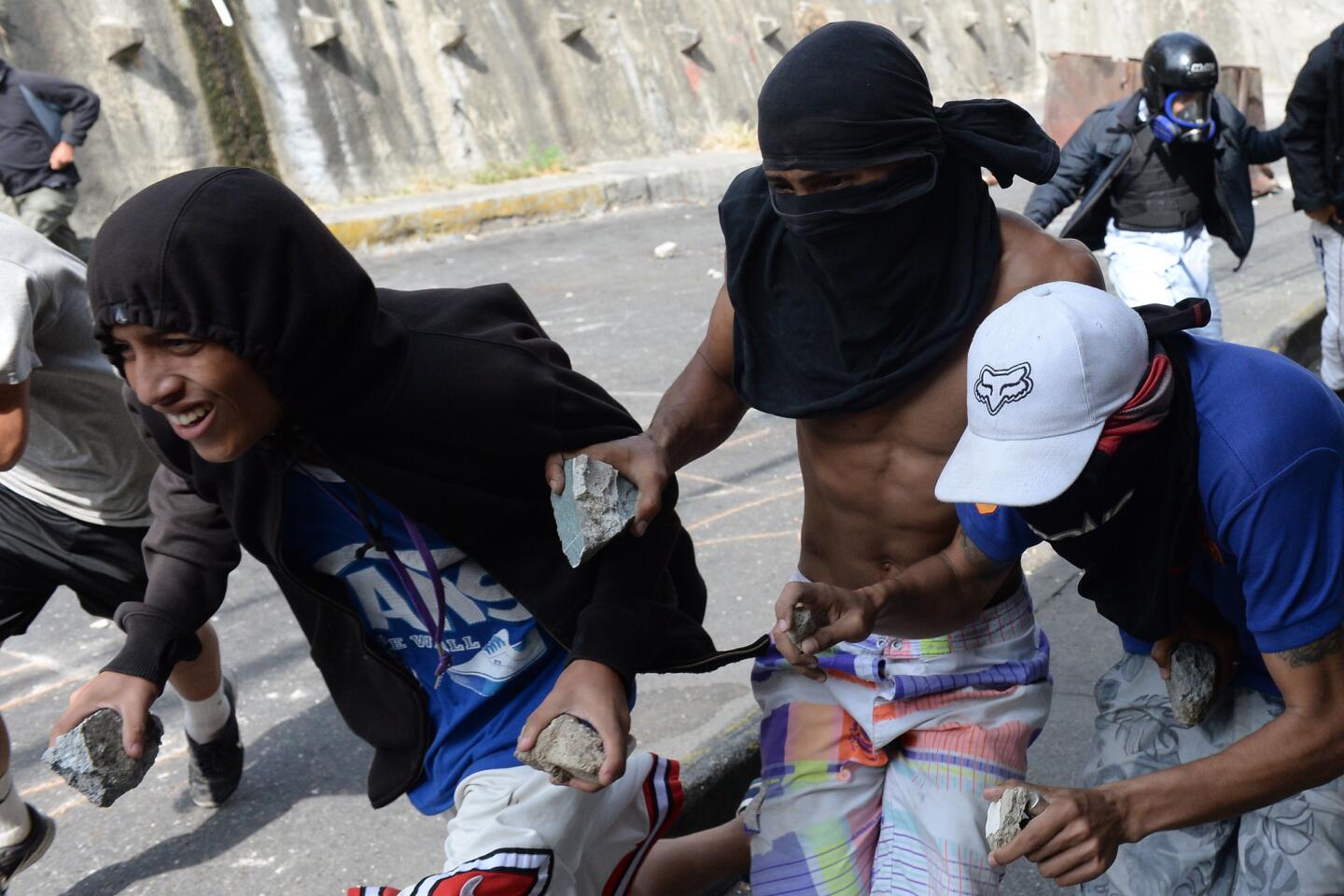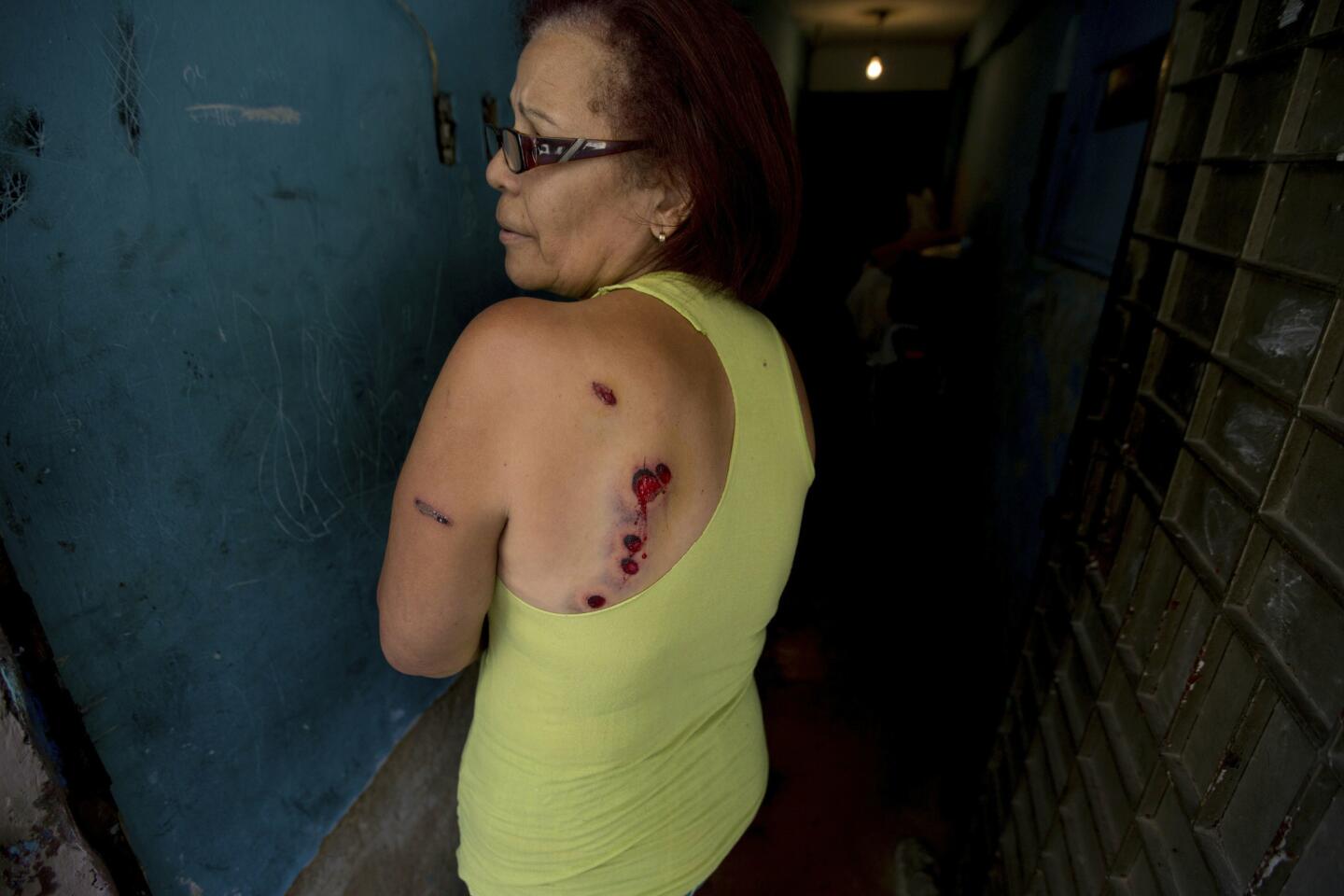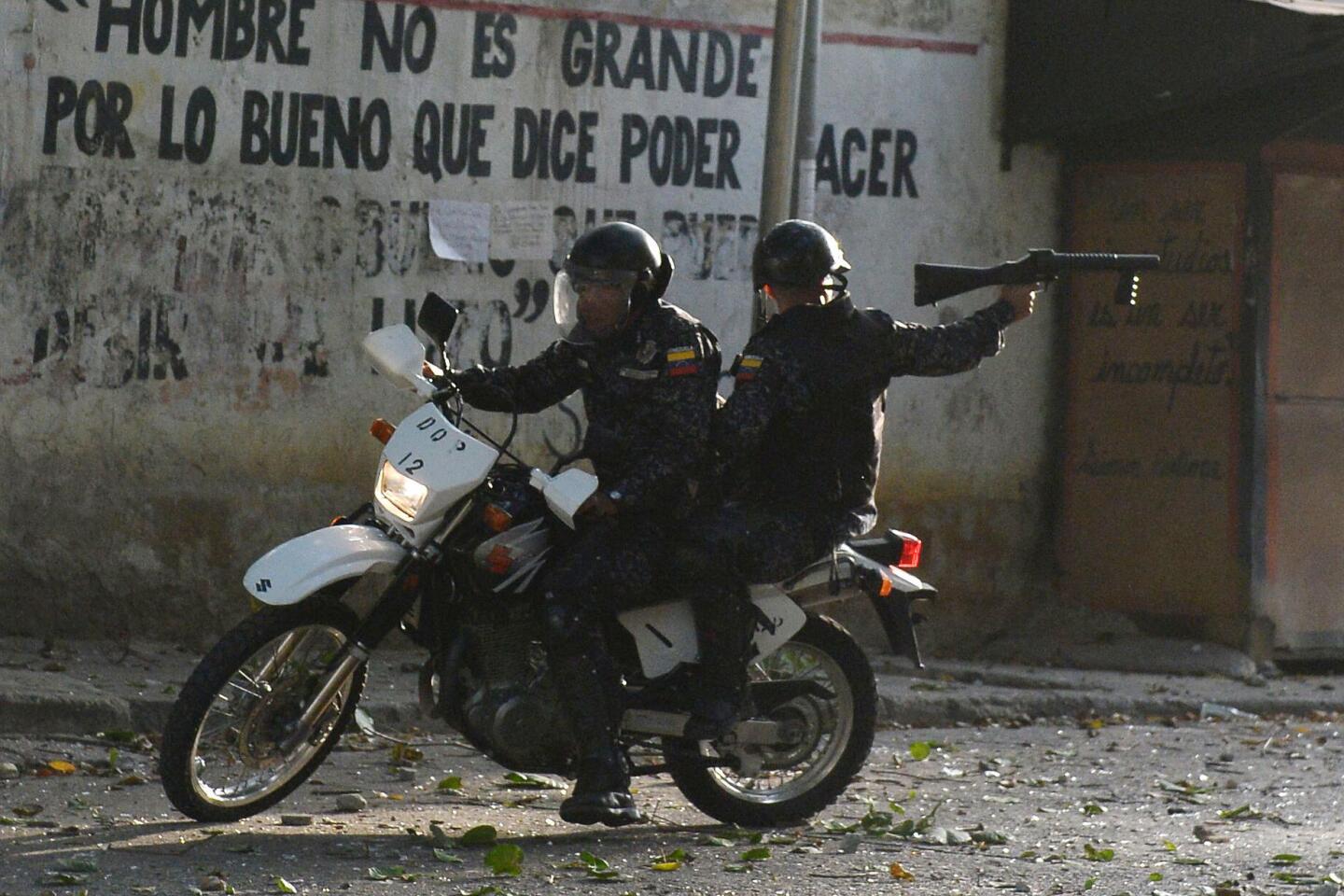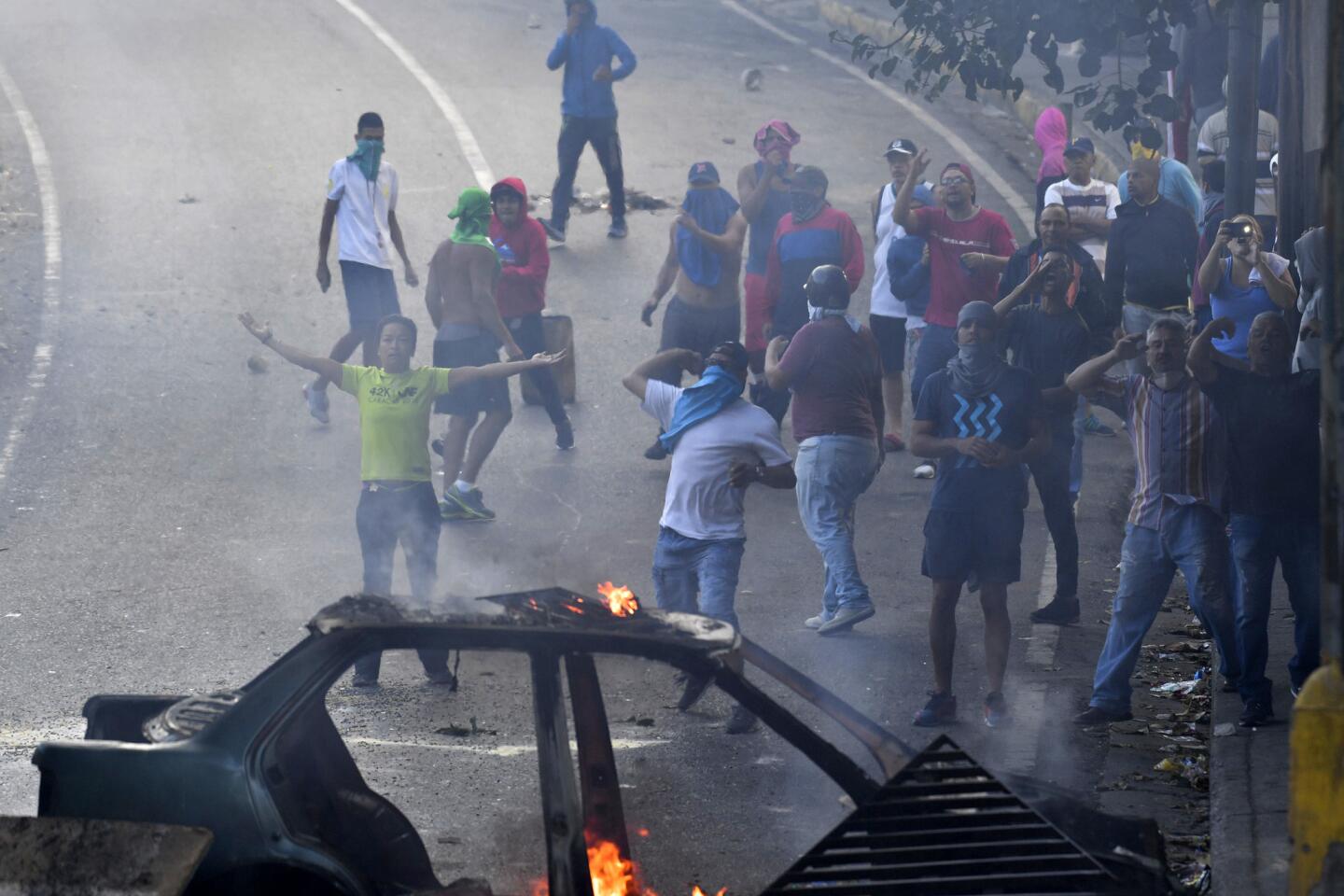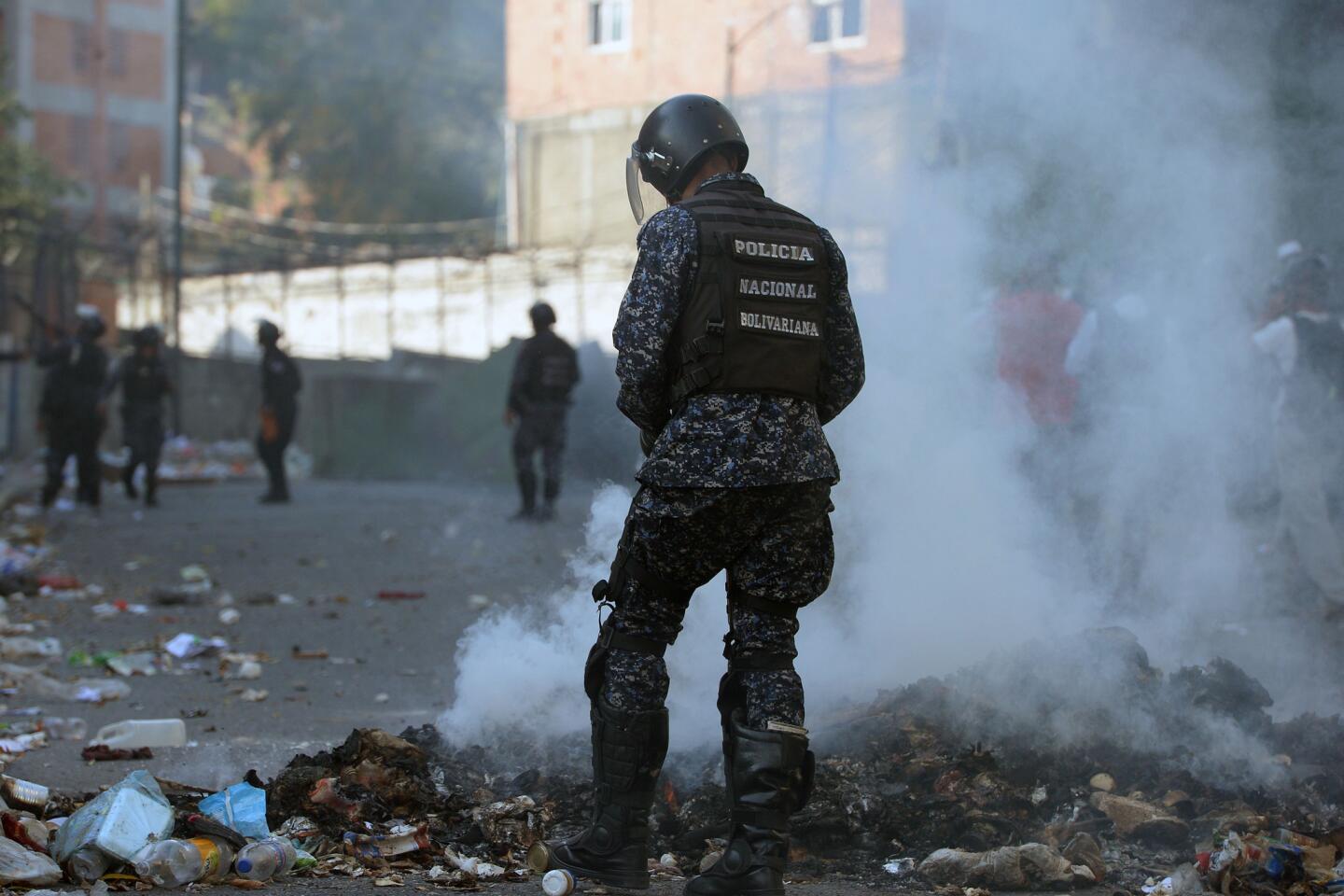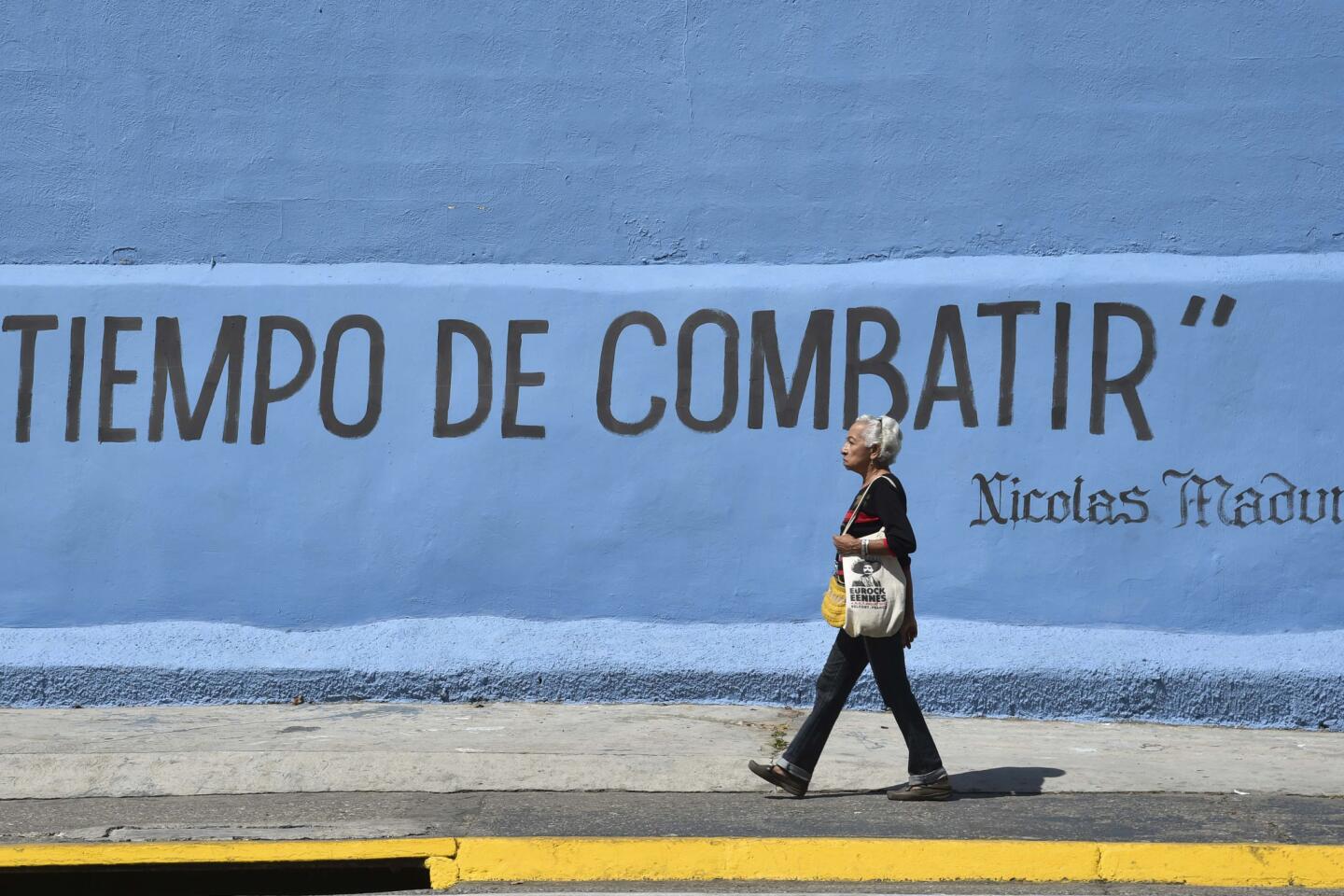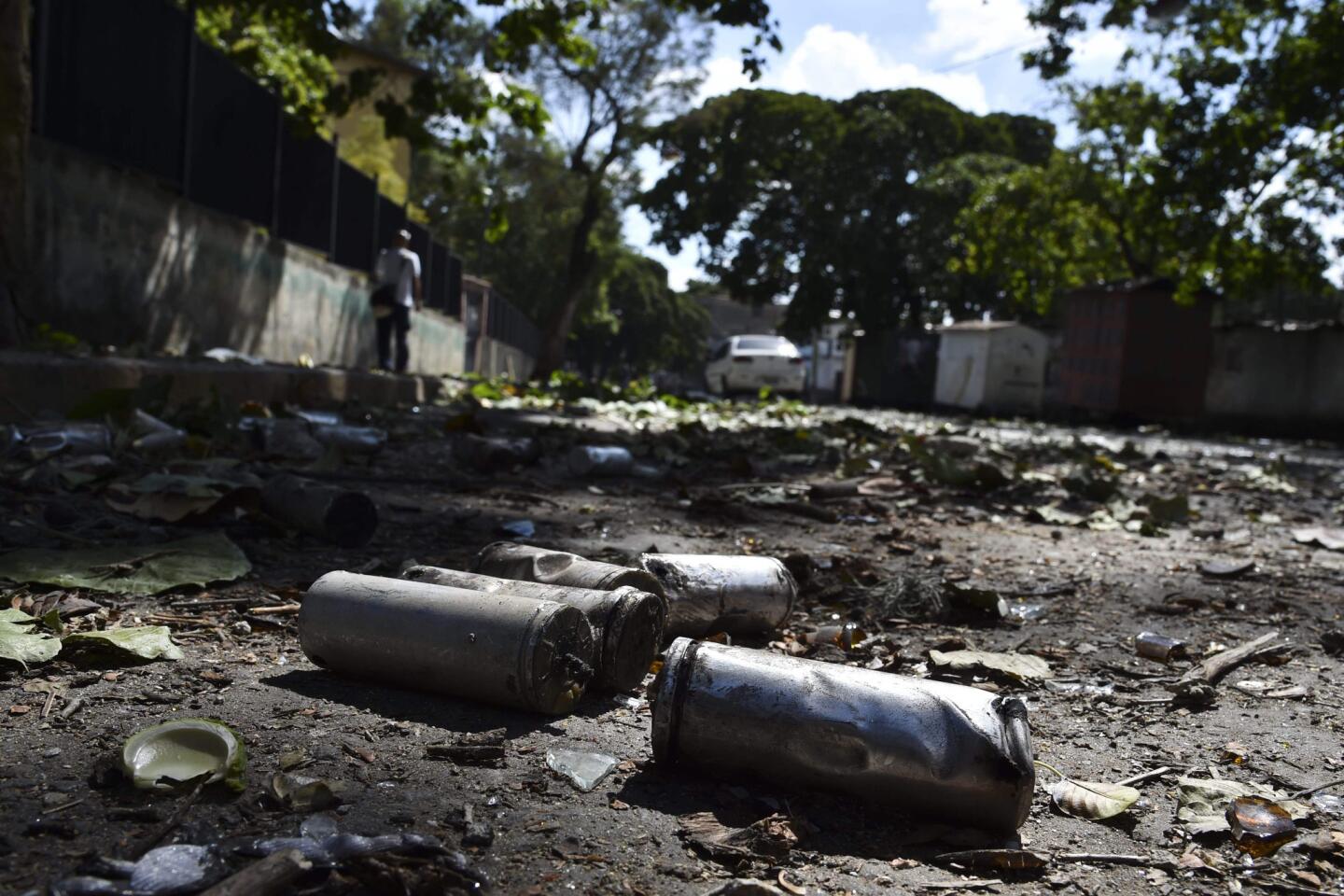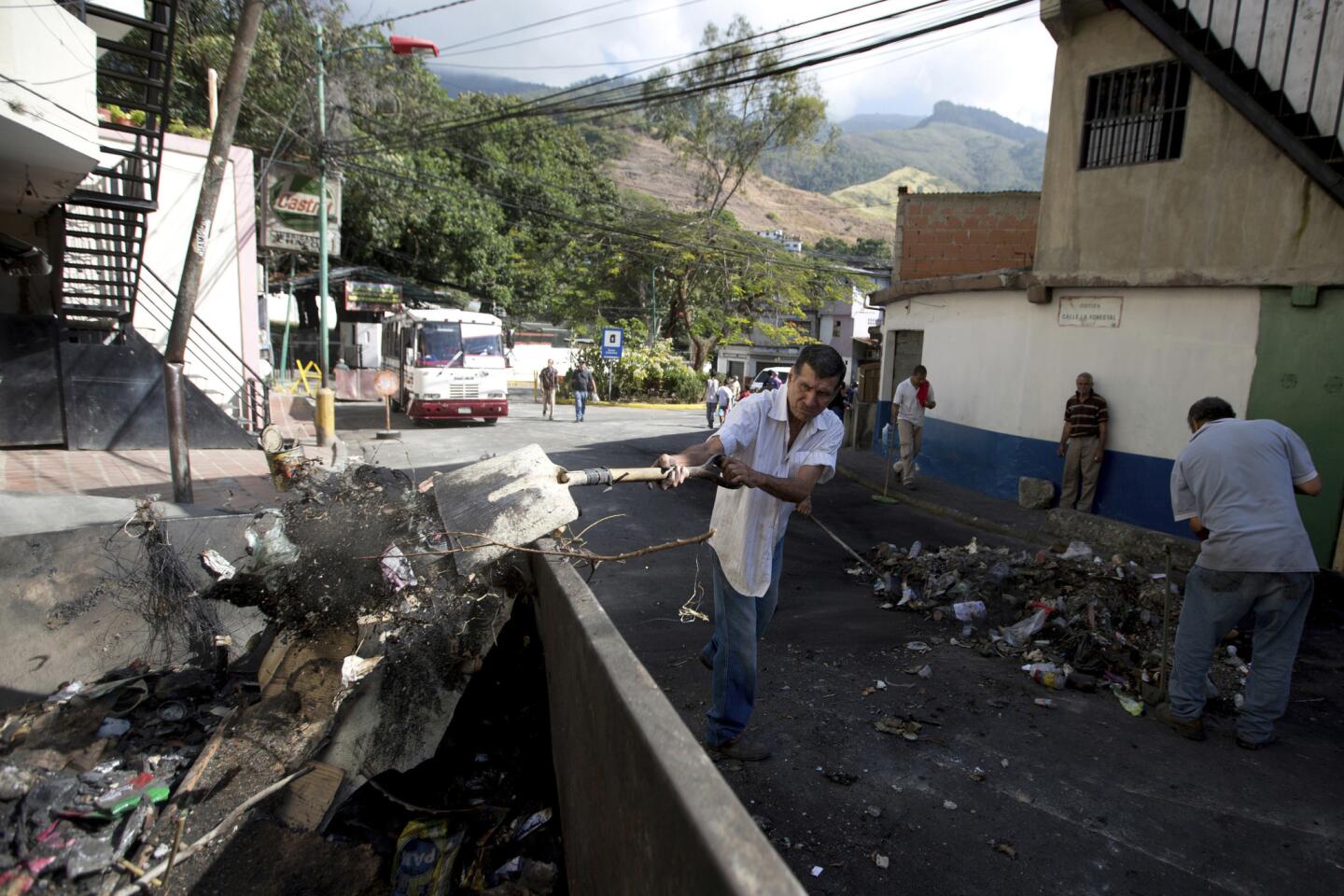A nation with two presidents: How a political crisis has unfolded in Venezuela
- Share via
The government of Venezuelan President Nicolas Maduro, whose reelection last May was widely considered rigged, has been accused of widespread human rights abuses and blamed for plunging the oil-rich country into a humanitarian disaster, with 80% of citizens living in poverty.
Now the future of his presidency has been thrown into doubt by a wildly popular upstart politician who has declared himself president and has been recognized as such by the United States and more than 20 other countries.
Here are some key moments in the evolving crisis:
Jan. 5 — Juan Guaido, a former student leader from the political party of popular opposition leader Leopoldo Lopez, is elected president of the National Assembly, where he has been a congressman since 2015.
Jan. 10 — Maduro is sworn in for a second six-year term. At least 50 countries, including the United States, have refused to recognize his reelection, which he supposedly won with 64% of the vote, even though his approval rating now is 15%.
Jan. 11 — Guaido tells an energized crowd in the capital, Caracas, that he is preparing to temporarily replace Maduro as president, a move that he says is legal under the constitution but that needs “backing from the citizens to make it a reality.” He calls for nationwide protests against Maduro on Jan. 23, the anniversary of a mass uprising in 1958 that removed Venezuelan dictator Marcos Perez Jimenez from power.
Jan. 21 — Maduro’s security forces squash a rebellion by a small group of soldiers at a military base in Caracas. The government-stacked Supreme Court issues a ruling declaring all laws passed by the National Assembly null and announces it is voiding a decision earlier this month by the congress to declare Maduro’s presidency unlawful.
Jan. 23 — Guaido swears himself in as president during a mass protest in Caracas. Speaking before thousands of Venezuelans, he pledges to “formally assume the duties of national executive to achieve the end of usurpation, [form] a transitional government and [hold] free elections.” The Trump administration grants him more than $20 million in aid and recognizes him as the country’s president, a decision seconded by most large countries in the Western Hemisphere. In response, Maduro announces he is breaking diplomatic ties with the U.S. and orders the expulsion of U.S. diplomats.
Jan. 25 — Guaido gives his first public speech since declaring himself president, telling supporters at a news conference-turned-political rally that “more than liberator, I want to be a public servant for you to transform the country.” He asks supporters to distribute copies of a proposed law that promises amnesty to members of the armed forces who rebel against Maduro.
Jan. 26 — Maduro’s foreign ministry says that it is suspending the expulsion order for U.S. personnel to leave the country. At the United Nations, efforts by the U.S. to sponsor a statement in support of Venezuela’s opposition leader are blocked by China and Russia, Venezuela’s main backers.
Jan. 27 — Maduro and Guaido both appeal to Venezuela’s military for support. Maduro tweets that the country’s armed forces are “prepared and ready to defend the national sovereignty.” Guaido counters: “Soldiers, I give you an order: Don’t shoot at the Venezuelan people. Do not repress peaceful demonstrations and don’t massacre our youths.”
Jan. 28 — The U.S. sanctions Venezuela’s oil company, seizing $7 billion in assets.
More to Read
Sign up for Essential California
The most important California stories and recommendations in your inbox every morning.
You may occasionally receive promotional content from the Los Angeles Times.
